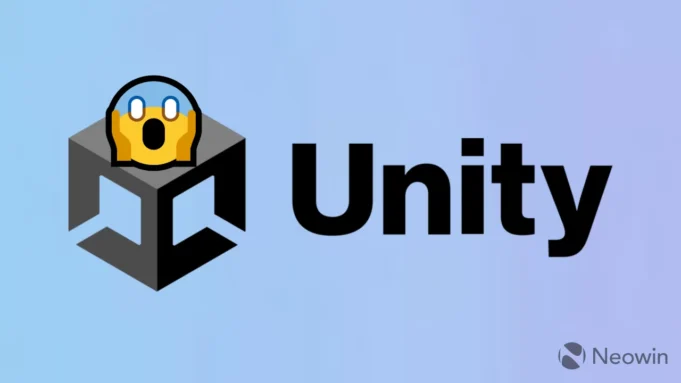A critical security flaw has been discovered in the Unity game engine, a platform used by countless developers to create the games we love (and sometimes rage-quit). This isn’t just a minor bug; it’s a Remote Code Execution (RCE) vulnerability, meaning bad actors could potentially hijack your computer through a compromised game. So, is it game over? Not quite, but it’s time to take action.
Critical Unity RCE Vulnerability: Patch Your Games Now!
Unity is a popular cross-platform game engine, empowering developers to unleash their creativity on Windows, macOS, Linux, PlayStation, Xbox, Switch, and more. Its latest iteration, Unity 6, was released last year. However, Unity Technologies has recently revealed a serious security vulnerability, urging developers to promptly apply the necessary patches.
According to a public advisory from Unity’s Larry “Major Nelson” Hryb, Unity versions from 2017 onwards contain a security vulnerability that enables remote code execution (RCE). In essence, an attacker could exploit the vulnerable Unity Runtime to execute malicious code on a user’s machine and gain unauthorized access to their sensitive data.
Imagine this: you’re battling a fearsome dragon in your favorite indie RPG, only to unknowingly open the door for a digital goblin to rummage through your personal files. Scary, right? The vulnerability, officially labeled CVE-2025-59489, affects games built for Windows, Android, macOS, and Linux using Unity 2017.1 and later.
The good news? Unity has been working with distribution partners like the Microsoft Store and Valve’s Steam to proactively roll out patches. And, perhaps even better news, there’s currently no evidence to suggest this bug has been actively exploited in the wild. But that doesn’t mean we should sit back and relax.
So, What’s the Big Deal? Why Should I Care?
Even though there’s no widespread exploitation *yet*, the potential consequences of an RCE vulnerability are severe. An attacker could gain complete control of a user’s system, steal personal information, install malware, or even use the compromised machine as part of a botnet. For game developers, this could mean reputational damage, legal liabilities, and a loss of trust from their player base. For players, it means the risk of identity theft, financial loss, and a general feeling of digital violation.
The Patching Process: A Necessary Evil (or is it?)
Projects under active development need to be recompiled using the latest patched version of the Unity Editor. For already-published games, developers ideally should recompile and republish using the new version. This can be a pain, especially for older titles that aren’t actively maintained. Unity has released a patching tool that bypasses a full recompile, but it’s not compatible with games using anti-cheat solutions.
Think of it like this: you’ve built a magnificent castle (your game), but a sneaky crack has appeared in the foundation (the vulnerability). You can either tear down the entire castle and rebuild it with reinforced foundations (full recompile), or you can apply a quick-fix patch to seal the crack (patching tool). The best approach depends on the age and construction of your castle.
Defensive Measures and Platform Responses
Microsoft has updated Windows Defender to protect against this vulnerability, and Android’s anti-malware systems have been enhanced. Valve is also issuing security updates for Steam, adding another layer of protection. These are welcome steps, but ultimately, the responsibility lies with developers to patch their games.
However, if you don’t patch your impacted game, there is a possibility that it could be pulled from storefronts, depending upon their policies. Some platforms like consoles and iOS appear to be unaffected, but Unity has recommended developers there to utilize the latest available version of the Unity Editor anyway too. Unity says that it’s okay for developers to inform customers about this vulnerability, along with assurances that there is no evidence of exploitation and that patches are readily available.
What’s Next? A Call to Action for Developers and Players
For developers: take this vulnerability seriously. Update your Unity Editor, recompile your games, and deploy the necessary patches. Your players (and your reputation) will thank you for it. Consult Unity’s official documentation and support channels for detailed instructions and best practices.
For players: be aware of the risk. Keep your operating systems and antivirus software up to date. Be cautious about downloading games from untrusted sources. And if you hear about a game being patched for this vulnerability, make sure you update it promptly.
The Unity RCE vulnerability is a stark reminder of the ever-present security threats in the digital world. By taking proactive steps, both developers and players can mitigate the risk and ensure a safer, more enjoyable gaming experience. It’s not game over, but it’s definitely time to level up our security awareness.
As hypothetical security expert Jane Doe from “CyberSafe Games” said, “This Unity vulnerability highlights the importance of secure coding practices and proactive security measures in game development. Developers need to prioritize security from the outset, not just as an afterthought.”
And remember, a patched game is a happy game. Happy gaming!
For more information on secure coding practices, check out resources from OWASP (hypothetical link: https://owasp.org/) and SANS Institute (hypothetical link: https://www.sans.org/).
Internal Linking Opportunity: Consider linking to a future article about secure coding practices in game development.

